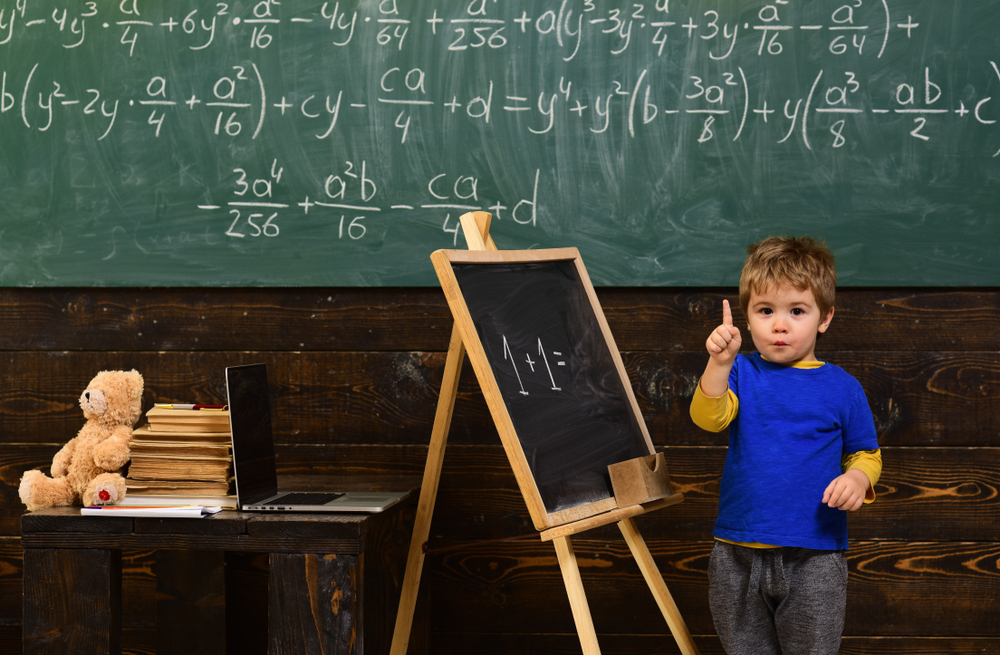Critical Thinking Normal Community Worksheets for Ages 6-9
5 filtered results
-
From - To
Boost your child's analytical skills with Kids Academy's Critical Thinking Normal Community Worksheets for Ages 6-9! Engaging and thoughtfully designed, these printable worksheets encourage young learners to explore and understand their communities while honing essential critical thinking abilities. Through various exercises like pattern recognition, problem-solving, and logical reasoning, kids will strengthen their cognitive capabilities in a fun, interactive way. Perfect for classroom use or at-home practice, our worksheets support educational growth by fostering a better understanding of social studies and enhancing critical thinking skills necessary for everyday situations. Empower your child's learning journey with Kids Academy today!
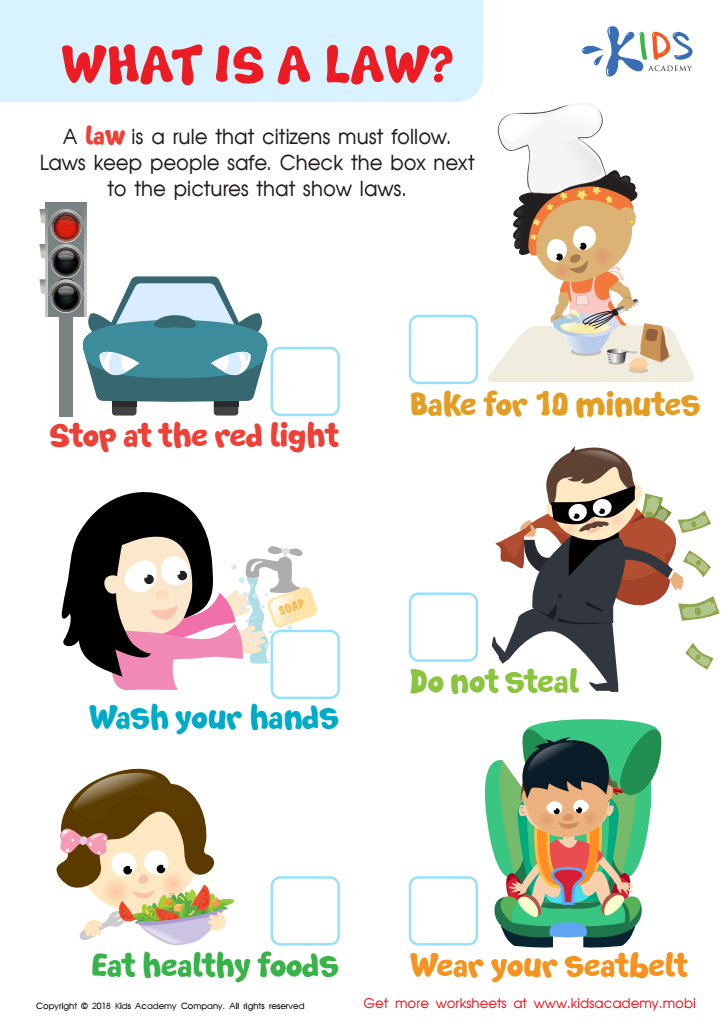

What is a Law? Worksheet
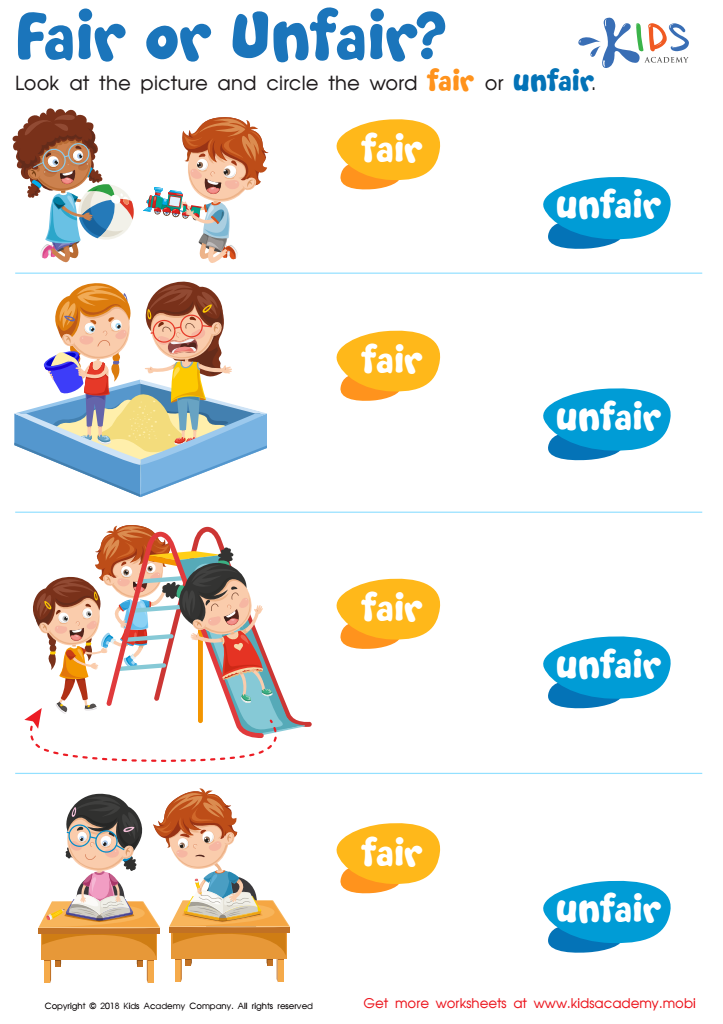

Fair or Unfair Worksheet
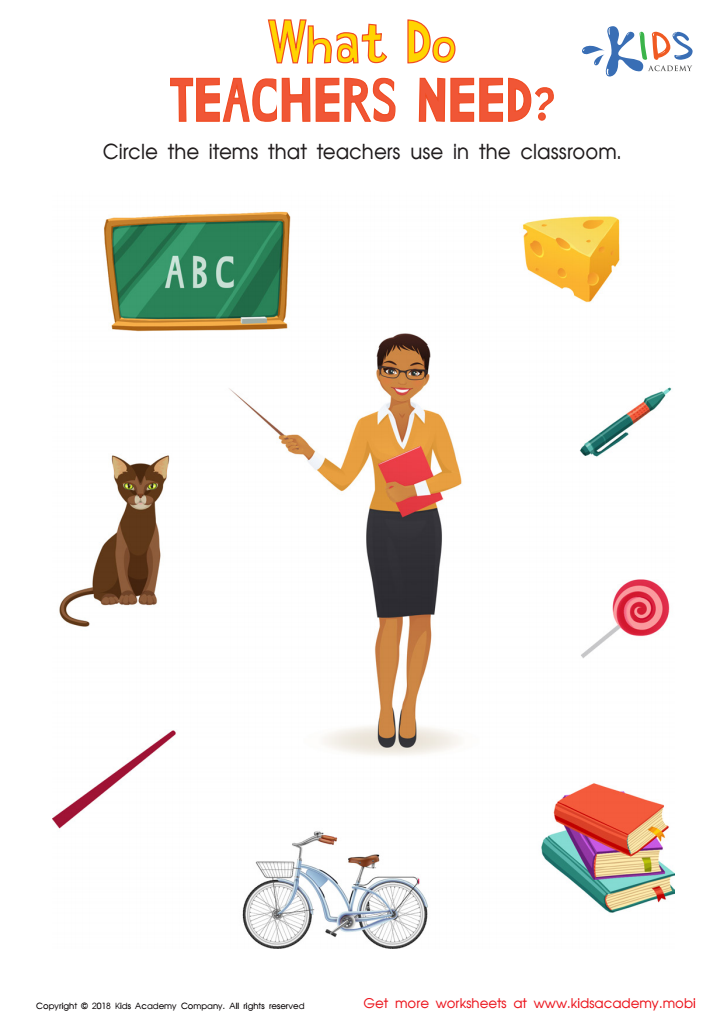

What Do Teachers Need Worksheet
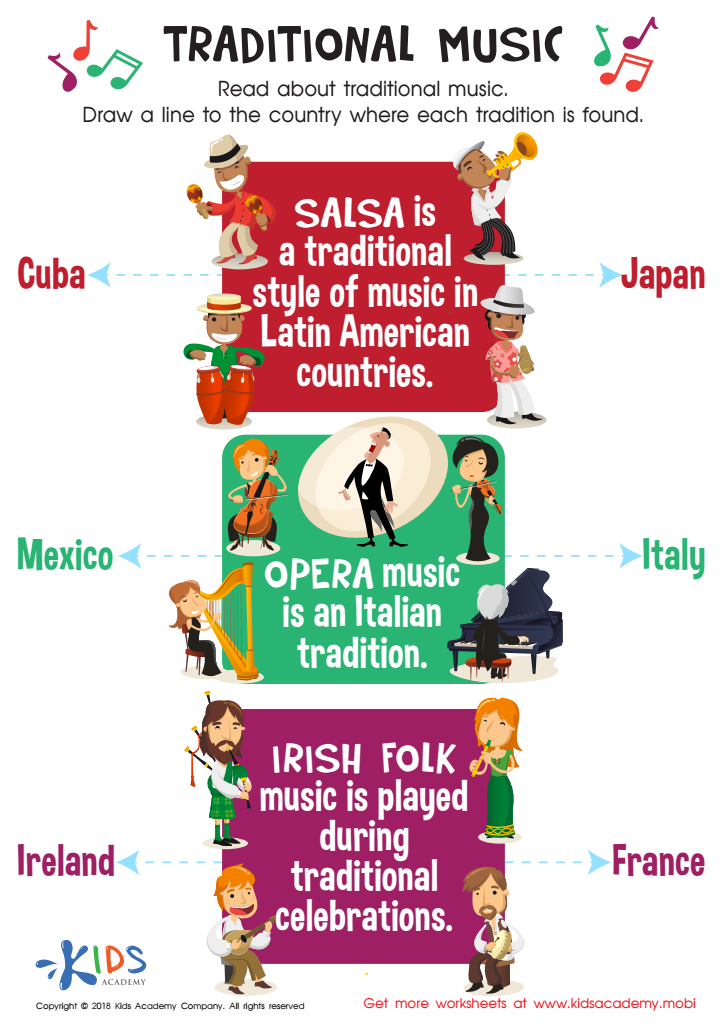

Traditional Music Worksheet
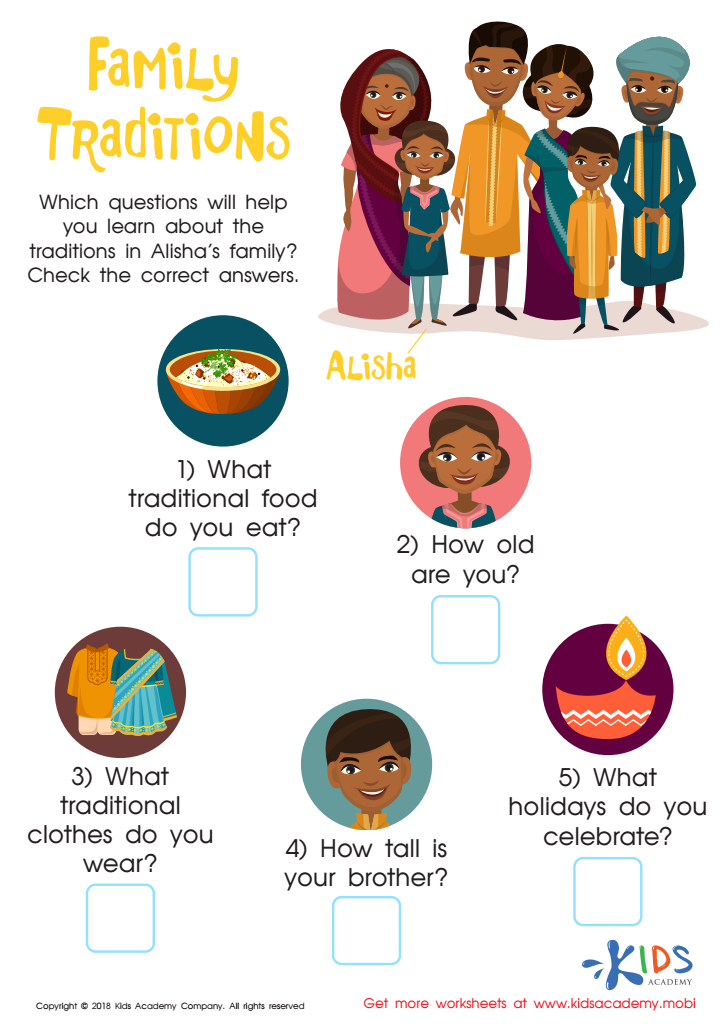

Family Traditions Worksheet
Encouraging critical thinking in children ages 6-9 is vital as it equips them with essential cognitive skills that foster a strong foundation for future learning and problem-solving. At this formative stage, children are rapidly developing their mental faculties and are highly receptive to absorbing information and forming cognitive patterns. By introducing critical thinking activities, we guide them to ask questions, evaluate information, and make reasoned decisions rather than merely memorizing facts.
When young children practice critical thinking, they learn to analyze situations, predict outcomes, and make connections between different pieces of information. This intellectual engagement is crucial as it promotes independent thinking and resilience against misinformation. Parents and teachers who emphasize critical thinking prepare children to face complex real-world challenges with confidence and agility.
Moreover, fostering a critical thinking community encourages collaboration and communication among peers. When children work together to solve problems, they exchange diverse perspectives, enhancing their cognitive and social skills. This collective effort builds a supportive learning environment where curiosity is valued, and intellectual risk-taking is encouraged.
In essence, prioritizing critical thinking equips children with the tools they need to navigate a complex world, thereby setting them up for academic success and informed, thoughtful adulthood.

 Assign to My Students
Assign to My Students





